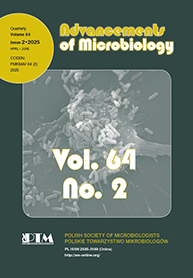Abstract: Autoimmune diseases, such as rheumatoid arthritis (RA), are examples of yet not entirely understood etiology. They are linked to immune system dysfunction, which becomes immunologically overactive, damaging the body’s tissues and organs. At least three major factors underlie the development of autoimmune disorders: environmental factors, including the oral and intestinal microbiomes, genetic predisposition, and aberrant autoimmune response. The dysbiosis of the oral microbiota, in particular, exerts a significant effect on RA, clinically manifested by damage of the joints. RA is significantly associated with periodontitis, which is caused by an increased abundance of Porphyromonas gingivalis in the subgingival niche, which disturbs the homeostasis of the oral microbial community. P. gingivalis is considered to contribute to the development and progression of RA. Although this bacterium may escape detection by the host immune system, it still induces an immune imbalance. RA and periodontitis also share similar pathological and clinical features. The progression of both chronic periodontitis and RA is linked to the dysregulation of the immune system and the damage caused by the immune response. Previous detailed studies have indicated that a specific enzyme of P. gingivalis, peptidyl-arginine deiminase, which catalyzes the citrullination of proteins, may trigger the autoimmune response resulting in the development of RA.
Browsing tag: dysbiosis
Abstract: In health, the relationship between gut microflora and the host is of a mutualistic kind. Microbiota offers many benefitsto the host, including harvesting energy, regulating host immunity, and the synthesis of vitamins. Alteration in gut microflora can lead to homeostasis disruption and development of various diseases. Dysbiosis is commonly observed in chronic kidney disease (CKD). Nutrient processing by gut microbiota results in the production of some uremic toxins, and these accumulate in CKD causing deleterious effects. Increased permeability of the intestinal barrier, which is also seen in CKD contributes to the development of the uremic state. These factors are associated with chronic inflammation and oxidative stress and therefore are involved in CKD-related complications, including disease progression, cardiovascular disease, anemia, mineral-metabolism, and insulin resistance. This review describes connections between altered gut microflora and development of CKD and its complications, as well as possible therapeutic options.
1. Microbiota – short characteristic. 2. Mechanisms leading to alterations in gut microbiota and their effects on intestinal barrier permeability. 3. Causes of chronic kidney disease progression related to gut microbiota alterations. 4. Complications of chronic kidney disease related to gut microbiota alterations. 4.1. Cardiovascular disease. 4.2. Anemia. 4.3. Bone metabolism disorders. 4.4. Insulin resistance in CKD. 5. Therapeutic options. 6. Summary
Streszczenie: Mikrobiota jelitowa w prawidłowych warunkach pozostaje w symbiozie z organizmem gospodarza. Bakterie jelitowe odgrywają istotną rolę w fermentacji składników pokarmowych, stymulują układ odpornościowy i wytwarzają witaminy. Zaburzenie składu flory jelitowej może prowadzić do zaburzeń homeostazy ustroju i rozwoju wielu chorób. Zaburzenie składu mikrobioty jelitowej obserwowane jest m.in. u pacjentów z przewlekłą chorobą nerek (PChN). W wyniku rozkładu resztek pokarmowych powstają substancje toksyczne, które kumulują się u pacjentów z obniżoną filtracją kłębuszkową i wywołują szkodliwe dla organizmu działania. Zjawisko to nasila się dodatkowo w wyniku zwiększonej przepuszczalności bariery jelitowej, co obserwuje się w PChN. Nadmierna produkcja toksyn i zwiększone ich wchłanianie w jelicie prowadzą do nasilenia reakcji zapalnych i stresu oksydacyjnego, co skutkuje rozwojem powikłań PChN, takich jak: progresja choroby, choroby sercowo-naczyniowe, anemia, zaburzenia gospodarki wapniowo-fosforanowej i powikłania metaboliczne. W tej pracy przedstawiono związek zmienionej flory jelitowej z rozwojem przewlekłej choroby nerek i jej powikłań oraz potencjalne możliwości terapeutyczne.
1. Mikrobiota – krótka charakterystyka. 2. Mechanizmy doprowadzające do jakościowych i ilościowych zmian mikrobioty jelit w przewlekłej chorobie nerek i ich wpływ na strukturę bariery jelitowej. 3. Przyczyny progresji przewlekłej choroby nerek związane z zaburzeniem mikrobioty jelitowej. 4. Powikłania przewlekłej choroby nerek związane ze zmianą mikrobioty jelitowej. 4.1. Choroby sercowo-naczyniowe. 4.2. Anemia. 4.3. Zaburzenia metabolizmu kostnego. 4.4. Insulinooporność w przewlekłej chorobie nerek. 5. Możliwości terapeutyczne. 6. Podsumowanie

